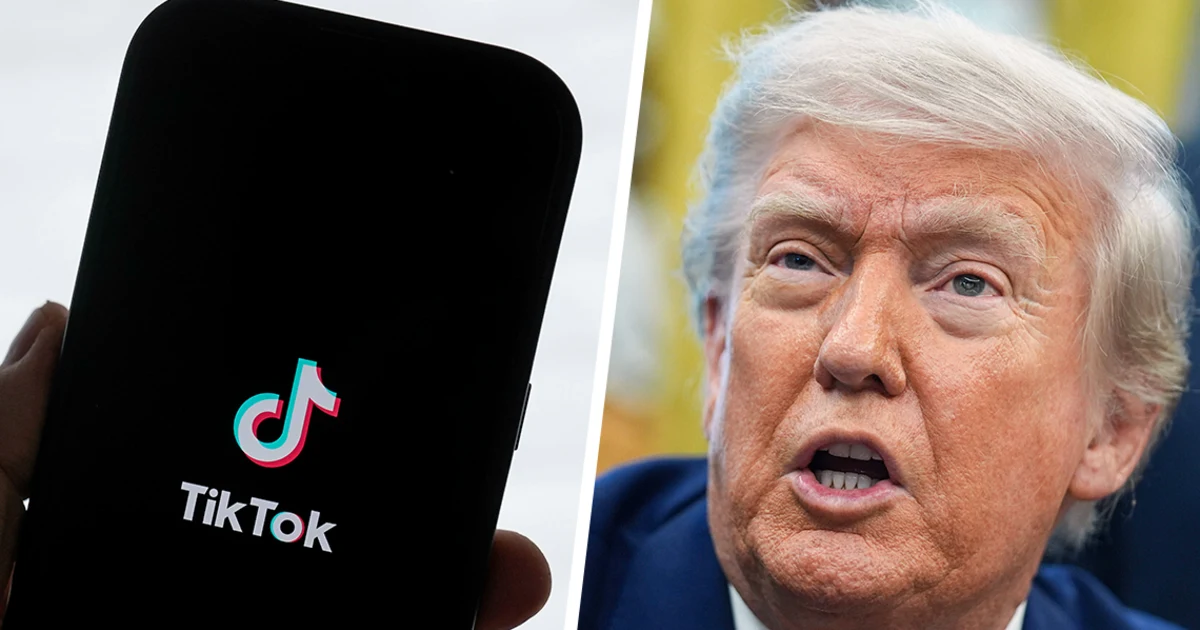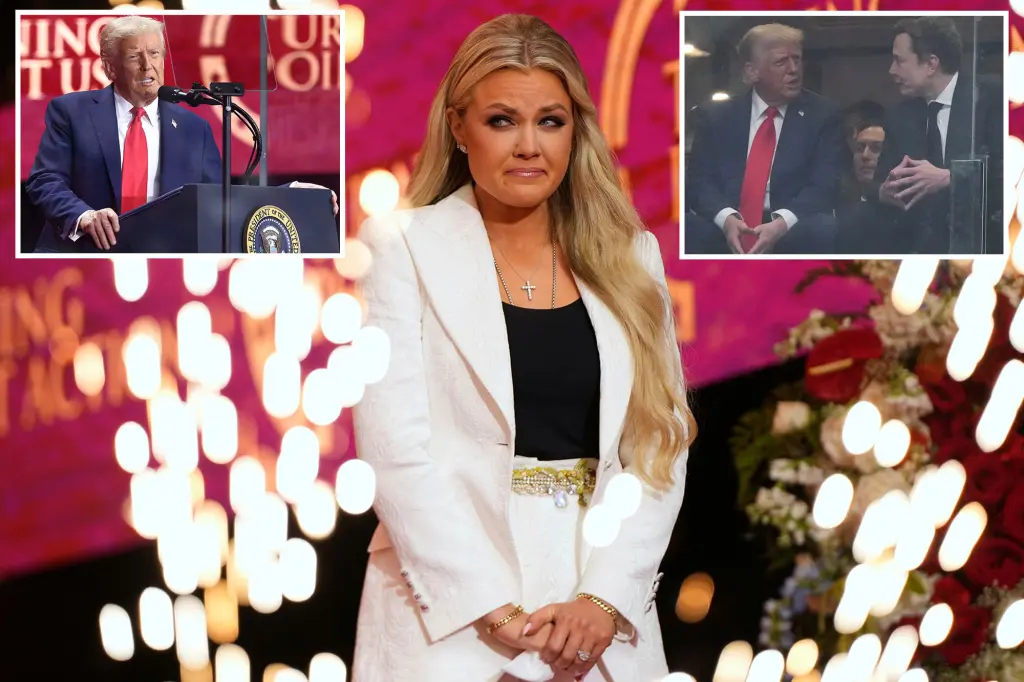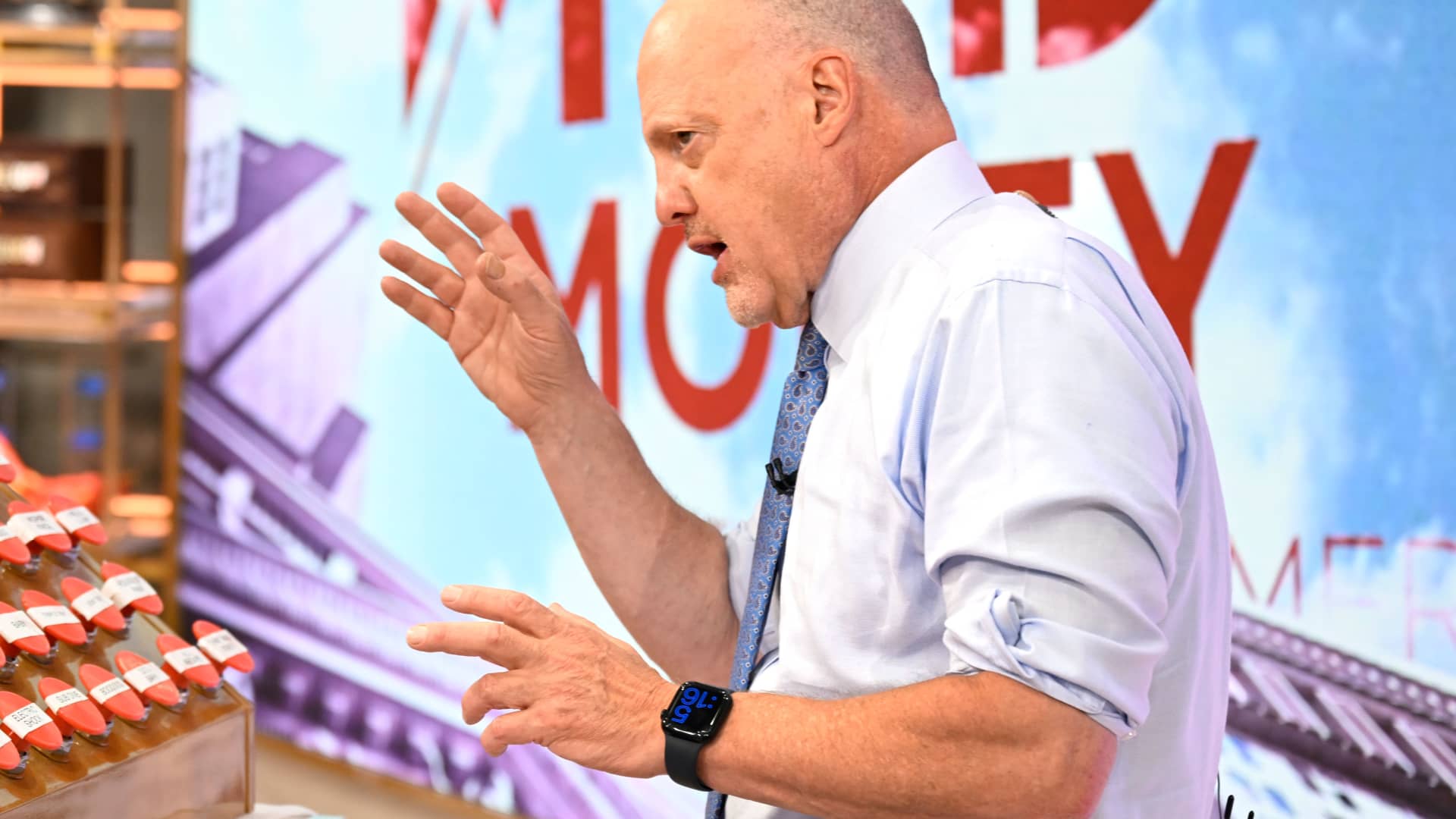
In his 2000 book, “The America We Deserve,” Donald Trump wrote that “what’s worked beautifully throughout American history is the freemarket economy.”
By definition, such a system is characterized by minimal government involvement; absent the kind of bureaucratic influence that stifles competition. For capitalists, it’s the hallmark of America’s economic prosperity.
But, in Trump’s second term as president, his White House has pushed the bounds of a limited intervention approach to the private sector, a system once championed by Republicans and the president himself. The administration has taken on an unusually significant role in arranging business deals and, in an increasing number of cases, the government is even taking a piece of the pie.
The latest example is expected to come in the form of what Trump called a “tremendous fee” the U.S. will collect for its part in negotiating an agreement to spin off the Chinese social media app TikTok into a U.S.-based entity. The Wall Street Journal estimates that it will be a multibillion-dollar payment — a hefty amount for direct discussions with President Xi Jinping and other Chinese officials.
Last month, the administration also took a nearly 10% stake in Intel by converting Biden-era grants into stock. Chipmakers Nvidia and AMD promised the government 15% of their revenues from sales of chips in China. Additionally, the Pentagon recently bought $400 million in stock from a critical-minerals mining company, and is considering acquiring equity in defense giant Lockheed Martin, too.
The moves are driven by “a consistent belief” in the Trump administration that the government should get a cut of any “major deal that comes across the president’s desk,” said Scott Lincicome, vice president of economics and trade at the Cato Institute. “That’s a kind of classic view of a real estate dealmaker, as opposed to a statesman and steward of the U.S. economy.”
Trump officials argue that the agreements have been in the country’s national interest because of national security risks, especially in critical industries like advanced technology. As for TikTok, a bipartisan law required its parent company, ByteDance, to divest from its American operations or face a ban over data privacy concerns.
Yet, the string of deals raises questions about whether certain companies have a leg up in competition, such as for prized government contracts, or favor navigating federal regulations compared to their counterparts.
The White House downplays its entanglements with businesses and plays up its other deregulatory efforts. One administration official pointed to a Council of Economic Advisers report that concluded that eliminating the Biden administration’s regulatory policies would spur enough economic growth to reduce the deficit by $1.1 trillion to $2.9 trillion over the next decade.
In a statement, White House spokesperson Kush Desai said, “Washington, D.C.’s blind commitment to consensus orthodoxy that ignored the realities of the world is exactly why Americans and America were left behind: look no further than lopsided ‘free’ trade arrangements that let foreign cheating decimate our industrial base. The Administration is simultaneously pushing the free market policies — such as rapid deregulation and working-class tax cuts — that do work while rectifying the America Last policies that haven’t worked to safeguard our national and economic security.”
By most accounts, the volume and scope of such deals that Trump has pursued in office are unprecedented. “When you have a perpetual stake in a company, it just fundamentally changes the dynamic,” Lincicome said. “We’re not talking about a one-off deal.”
“All of these deals,” Lincicome continued, “have a pain point or a leverage point that really puts success or failure at discretion of the president himself, and the Trump administration increasingly appears willing to use that leverage to exploit that pain point to achieve whatever they want.”
Some leverage points include subsidies and loans approved under his predecessor, Joe Biden, which Commerce Secretary Howard Lutnick told lawmakers this summer he would review. “We should get an equity state for our money,” Lutnick told CNBC, “instead of just giving grants away.”
Vermont Sen. Bernie Sanders, a self-proclaimed democratic socialist, supported the administration taking equity in Intel. Meanwhile, Sen. Elizabeth Warren, D-Mass., who backed a similar concept in 2022, criticized the deal. “What is the American public getting from this deal?” she asked in a letter to Lutnick. “An extremely risky investment.”
In another deal, Nippon Steel required approval from the Committee on Foreign Investment in the United States, or CFIUS, for its bid to purchase U.S. Steel. The president issued an order asking CFIUS to launch a new review before later announcing plans for the transaction. The administration received a symbolic “golden share” as part of approving the acquisition, allowing Trump officials to wield wide-ranging veto powers over critical company decisions. Recently, the White House said it halted the company’s decision to close a plant in Illinois.
United Steelworkers International President David McCall said Trump “has assumed a startling degree of personal power over a corporation,” describing the agreement. The firm’s tether to the government likely will continue after Trump leaves office and it’s unclear if, and when, it ever expires.
Justin Wolfers, an economist at the University of Michigan, said that the arrangements amount to “crony capitalism,” in which relationships with bureaucrats influence normal market conditions. He argued that officials could use “soft pressure,” with the Intel deal, for example, to convince companies “to buy computer chips that they didn’t want to buy.” For competitors, “anyone who puts pressure on you to buy a set of computer chips that you didn’t otherwise want to buy is making your business worse,” Wolfers added.
The U.S. government has previously taken steps to stabilize industry during wartimes and recessions, such as the 2008 financial crisis, but usually with the intent to eventually release firms from temporary government control. The Trump administration is attempting to do just that by putting mortgage guarantors Fannie Mae and Freddie Mac back on the market.
According to John Rosen, an economics professor at the University of New Haven, other presidents have wielded their power to put their weight on the scale of business deals for their friends, such as Oracle’s Larry Ellison, a Trump ally and an investor in the TikTok deal.
“In general, the American system is supposed to say that the government merely sets the rules; it doesn’t pick the winners and losers,” Rosen explained. “But as with all things Trump, he’s more flamboyant and visible about it.”



